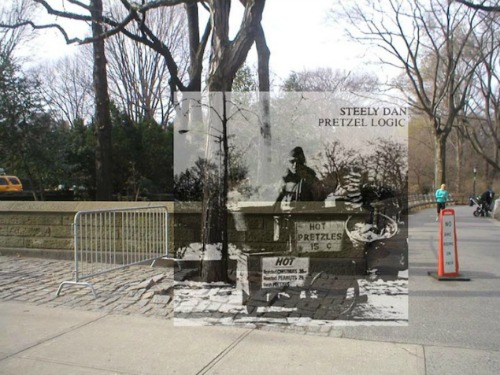Yesterday the Wall Street Journal released a story penned by
no other than Taylor Swift, who gave a slight commentary on the future of the
album-driven music industry. Her main point was swift (pun!) and straightforward:
“Music is art, and art is important and rare. Important, rare things should be paid for.”
Tay, I appreciate that you are an “enthusiastic optimist,”
and perhaps “one of the few living souls in the music industry who still
believes the [it's] not dying,” but welcome to the 21st century.
No offense, Taylor Swift, but as a member of the elite “One Percent,” I don’t think you have any clue. In fact, your tirade
seemed more like propagated prose from the Big Heads themselves rather than the reality of today’s techno-situation.
And yes, you did make a few valid points. For example, your metaphor comparing the relationship between a quick fling and
a long-lasting musical rapport was completely convincing. Sure, I am an avid listener of
The Beatles, which was passed down to me from my parents and will definitely be
passed down to my children. But that is not to say I am going to go out and
purchase their tangible albums—what a waste of money!
Sorry, Taylor, and no offense, but your consumerist dreams
are beyond unrealistic. Why would I spend $20 on an album (that I can
stream online for free) when I need that money for gas to get to work.
Think about it, we are not all in your situation. You are a
24-year-old girl living her dream, while, according to Forbes, racking in over $55 million just last year.
What about people like me? I spent four years of my life
studying for a degree in journalism, but yet here I am, working to make enough money just to move out of my parents’
house. I’m still wearing Soffee shorts (#vintage) and drinking cheap vodka
while you’re inviting your celebrity friends to your private boat and ocean front mansion to celebrate the Fourth of July.
You contradict yourself when you say an album’s worth
is based on the amount of heart and soul an artist bleeds into their art and also the financial value that artist and their label place on their music. The juxtaposition is an insult to musicians everywhere,
especially the majority of those who haven’t “made it.”
Have you ever taken a subway in New York City? Or walked the
streets of New Orleans? I have never heard so much, as you worded it, blood drawn into their art: the
saxophones, the guitars, the voices of poor, rich, old and young. It has
nothing to do with the artist's heart and soul—which, is so painstakingly
obvious from the majority of today’s popular music—but rather the artist’s
commercial value, an absurdly loud harbinger as to where your ideas stem from.
My point is that music is not rare. As a musician you should know that music is
everywhere. It could be seen as a material
value, as you put it, or it could simply just be seen as a part of life.
You talk about “surprising” and not “shocking” your audience
to stay relevant in our saturated media climate—try this on for size. My
dad once told me of a Grateful Dead show he went to when he was younger. Cars were
lined outside the festival gates the night before, and he expected to fall
asleep quickly in his own passenger seat.
But you know what he got instead?
The Dead created a small makeshift stage and
performed that entire night, for free,
so that their fans wouldn’t be left lonely in their cars. Do you
know how amazing that is to me? How incredible
it is that a musician would get on stage with no qualms of getting paid, to
perform so selflessly for their fans? That is something you don’t see anymore.
No offense, Taylor Swift, but how much money do you make
just for promotions, advertisements or allowing the paparazzi to take your
photo? I am a pirate. I haven’t
bought an album in who knows how long, and I don’t plan on it anytime soon.
It is easy for you to make this argument because you are a product of the music industry. They
depend on you to make millions so that they themselves could make
billions.
As living, breathing and animate human beings, we have the
ability to share things that make us happy, to spread joy. And so be it if it
is free, it is what makes humankind unique to everything else in this world. Piracy,
file sharing and streaming music online are just the beginning of the worldwide
revolution of this cyclical journey of sound.
Instead of berating it—and no
offense, Taylor Swift, but you and I both know you don’t really need the extra pocket change—why not embrace it?
This is an incredible opportunity that past generations did
not have, the ability to let their music spread through niches that otherwise
would be left unfound. It is a beautiful thing, and it’s about time the bastardly
heads of the music industry allow this revolution to spread. Who cares if you
don’t bring in the extra million or two album sales would bring—I know I
don’t.
Just be grateful that you are one of the lucky few who are able to make
a living off of something you love, and that you are able to disseminate your
product (through whatever medium) to the people out in this world who really
need it the most.



















